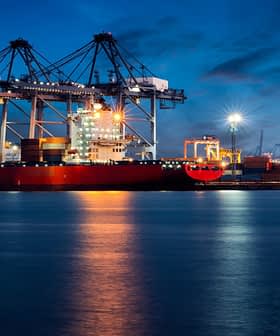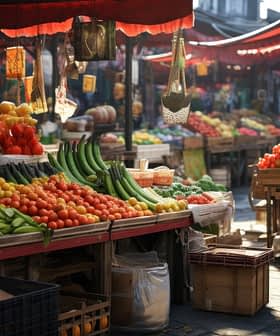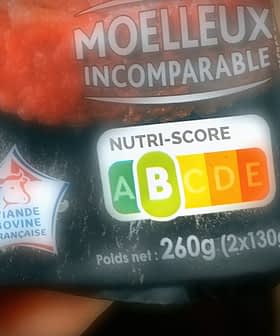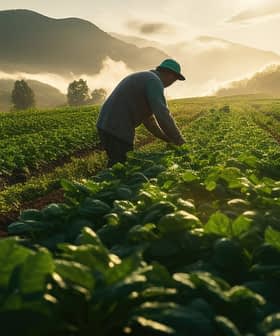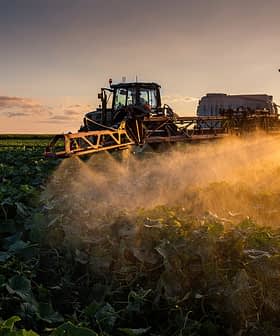Food Labeling Debate Reignites as Romania Bans Nutri-Score

The Nutri-Score front-of-pack labeling system has been banned in Romania, sparking debate over its effectiveness and potential impact on public health. Despite positive data from countries like France and Germany where Nutri-Score has been implemented, the ban in Romania is attributed to pressure from lobbies and a lack of approval from retailers.
The debate surrounding the Nutri-Score front-of-pack labeling (FOPL) system has re-ignited after Romania banned the label effective May 1.
The decision of the Romanian National Authority for Consumers Protection (ANPC) forbids the Nutri-Score logo from appearing on food packages sold to the public.
“The Romanian decision is not based on science and public health,” Serge Hercberg, Nutri-Score’s founder, told Olive Oil Times. “It is based on the pressure of lobbies.”
See Also:Olive Oil Will Never Attain the Highest Rating, Nutri-Score Founder Says“The [ANPC’s] position appears in denial of the many scientific works outlining the efficiency of Nutri-Score in terms of public health,” he added.
Nutri-Score is a traffic-light-style FOPL that uses a combination of five coordinated colors and letters to rate how healthy a packaged food item is based on its fat, sugar, salt and calorie content per 100-gram or milliliter serving.
The ‘Green A’ indicates the healthiest option, and ‘Red E’ denotes the least healthy. Due to a recent update, all olive oils are now rated as Light-green B.
ANPC’s officials said they imposed the ban on the adoption of Nutri-Score because it has not been approved for use by the country’s retailers.
The Romanian ban resembles an Italian consumer protection authority decision adopted last year, which imposed severe limitations on its use, arguing that Nutri-Score could not accurately inform consumers.
However, Hercberg lamented that the Nutri-Score ban would result in a lost chance for consumers to make healthy choices.
“Instead, consumers are targeted by marketing activities to push them to overeat products which present an unfavorable nutritional composition,” Hercberg said.
Hercberg’s position is shared by the European Consumer Organisation (BEUC). “It is regrettable that Romanian authorities are planning to ban the valuable and science-based Nutri-Score in the country,” Emma Calvert, BEUC’s senior food policy officer, told Olive Oil Times
According to Calvert, the delayed introduction of the ANPC ban in Romania, which was decided last year, is due to the expectations that the European Commission will introduce its own food labelling policy.
“It is clear that the proposal’s repeated delays are having multiple negative side effects,” she said. “It is not only denying consumers a useful information tool to help them opt for healthier choices in the supermarket, but it is also depriving operators and national authorities of legal certainty.”
Still, further debate has been triggered by the recent Nutri-Score update, which penalizes artificial sweeteners widely used as sugar substitutes. Water remains the only beverage classified as ‘Green A.’
The update downgrades many low-calorie soft drinks, an outcome which has led to protests from some companies.
In countries where Nutri-Score has been fully implemented, such as France and Germany, the FOPL’s impact on consumers’ choices has been significant.
“We have very encouraging data about the impact of Nutri-Score in France,” Hercberg said. “Sales in supermarkets of food packages with the Nutri-Score logo show a decrease in sales of products ranking D or E and an increase of sales for products ranking A or B.”
“On top of that, we have positive data about the reformulation of food products,” he added, referring to the changes made by producers to some packaged food items in an effort to improve their Nutri-Score rating.
“Studies carried out by Santé Publique France showed that 94 percent of consumers favor the presence of Nutri-Score on the packaging,” said Hercberg, adding that 89 percent of consumers would also like Nutri-Score to be mandatory on all food packages.
“57 percent of the consumers declare that they have already changed at least one of their purchasing habits due to Nutri-Score,” he added
In the last two days, the Nutri-Score blog, supported by more than 300 health researchers and scientists, further fuelled the debate by publishing a research paper titled ‘Why the European Commission must choose the Nutri-Score nutrition label – a public health tool based on rigorous scientific evidence – as the harmonized mandatory nutrition label for Europe.’
The report underlines the reasons seven European countries have so far introduced Nutri-Score. It also dedicates whole chapters “to address questions that may be legitimately raised on Nutri-Score but that are often misused and exploited as fake news by lobbying groups.”
“The major obstacle to a wide adoption of Nutri-Score in Europe is the joint pressure at European Commission level of large food companies opposed since the beginning to Nutri-Score,” Hercberg said, pointing to Coca-Cola, Unilever International, Ferrero and Kraft.
In his opinion, pressure against Nutri-Score comes from “certain agricultural sectors, especially the cheese and processed meat sectors and their powerful European representation Copa-Cogeca,” he added.
After several delays, how and when the European Commission will adopt an E.U.-wide FOPL remains unclear.
Hercberg remarked how the delays in such a decision come from the involvement of several politicians “close to the lobbies” and “the lobbying actions of the Italian government, accelerated since Italy’s last elections, and some other countries, such as Romania.”
“[They are] deploying the most absurd and dishonest arguments to prevent the choice of Nutri-Score,” he concluded.


